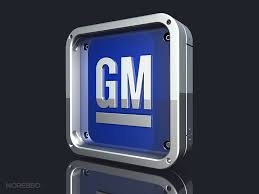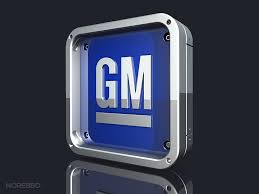
In a call-back that would cost General Motors Co $550 million, the U.S. automaker would be forced to recall another 4.3 million vehicles for potentially defective Takata air bag inflators due to sustained pressures from US regulators. The U.S. automaker said this in a statement on Thursday.
Due to Takata Corp air bag inflators that may not work properly, GM would recall 1.9 million of its sold vehicles, the company had said in May. However after a review of ownership data, it expanded that recall to another 600,000 vehicles in June.
While replacing inflators in the 2.5 million vehicles recalled to date would cost as much as $320 million the costs of replacing Takata air bag inflators in the 4.3 million additional vehicles would be $550 million, GM had said in a securities filing recently.
GM had agreed to the initial recall after talks with the U.S. National Highway Traffic Safety Administration even though the company had said that it does not believe there is a safety defect in any of the 6.8 million vehicles.
Another 35 million to 40 million U.S. air bag inflators assembled by Takata would have to be recalled by 17 automakers, the NHTSA had said in May this year. The Takata inflators have been linked to at least 13 deaths and more than 100 injuries and previously 14 automakers had recalled 24 million vehicles with 28.8 million inflators.
"The results of further testing and analysis will demonstrate that the vehicles do not present an unreasonable risk to safety and that no repair will ultimately be required," the company believes, it said.
GM has not yet accounted for the costs of the recall and has not yet begun making repairs on the initial 2.5 million vehicles recalled.
No risk is posed by the Takata airbags installed in its vehicles due to their unique design, GM said. Among 44,000 deployments in large GM pickups and SUVs that contain Takata inflators, the company said that data showed no cases of an airbag rupturing among these vehicles.
GM said that a different venting for hot gases released when the Takata airbag deploys is used in the Takata inflators used in GM trucks and large SUVs. The company laso said that to minimize exposure to moisture, the GM vehicles have installed the Takata airbags in a special manner.
However the position of regulators that all frontal Takata airbag inflators without a drying agent must be recalled is different from GM's stance on airbags.
The agency's position was reiterated by NHTSA spokesman Bryan Thomas on Thursday. "The science clearly shows that these inflators become unsafe over time, faster when exposed to humidity and variations of temperature," he said.
How automakers can petition for permission to alter the recall schedule was also described by the NHTSA on Thursday in the form of a guidance. The process should not be "used to eliminate a population of vehicles from the recall", NHTSA said.
The Takata inflators can explode with too much force and spray metal shrapnel into vehicle passenger compartments and this has been linked to 13 deaths and more than 100 injuries across the globe which are believed to be attached to more than 100 million vehicles.
(Source:www.reuters.com)
Due to Takata Corp air bag inflators that may not work properly, GM would recall 1.9 million of its sold vehicles, the company had said in May. However after a review of ownership data, it expanded that recall to another 600,000 vehicles in June.
While replacing inflators in the 2.5 million vehicles recalled to date would cost as much as $320 million the costs of replacing Takata air bag inflators in the 4.3 million additional vehicles would be $550 million, GM had said in a securities filing recently.
GM had agreed to the initial recall after talks with the U.S. National Highway Traffic Safety Administration even though the company had said that it does not believe there is a safety defect in any of the 6.8 million vehicles.
Another 35 million to 40 million U.S. air bag inflators assembled by Takata would have to be recalled by 17 automakers, the NHTSA had said in May this year. The Takata inflators have been linked to at least 13 deaths and more than 100 injuries and previously 14 automakers had recalled 24 million vehicles with 28.8 million inflators.
"The results of further testing and analysis will demonstrate that the vehicles do not present an unreasonable risk to safety and that no repair will ultimately be required," the company believes, it said.
GM has not yet accounted for the costs of the recall and has not yet begun making repairs on the initial 2.5 million vehicles recalled.
No risk is posed by the Takata airbags installed in its vehicles due to their unique design, GM said. Among 44,000 deployments in large GM pickups and SUVs that contain Takata inflators, the company said that data showed no cases of an airbag rupturing among these vehicles.
GM said that a different venting for hot gases released when the Takata airbag deploys is used in the Takata inflators used in GM trucks and large SUVs. The company laso said that to minimize exposure to moisture, the GM vehicles have installed the Takata airbags in a special manner.
However the position of regulators that all frontal Takata airbag inflators without a drying agent must be recalled is different from GM's stance on airbags.
The agency's position was reiterated by NHTSA spokesman Bryan Thomas on Thursday. "The science clearly shows that these inflators become unsafe over time, faster when exposed to humidity and variations of temperature," he said.
How automakers can petition for permission to alter the recall schedule was also described by the NHTSA on Thursday in the form of a guidance. The process should not be "used to eliminate a population of vehicles from the recall", NHTSA said.
The Takata inflators can explode with too much force and spray metal shrapnel into vehicle passenger compartments and this has been linked to 13 deaths and more than 100 injuries across the globe which are believed to be attached to more than 100 million vehicles.
(Source:www.reuters.com)





